Having clean, filtered water in your mobile home is extremely important for your health and wellbeing. Unfiltered water can contain harmful contaminants like lead, pesticides, bacteria and more that can cause illness over time. Investing in a water filtration system designed specifically for mobile homes allows you to filter out these impurities right at the source.
In this comprehensive guide, we will cover everything you need to know about mobile home water filtration systems. We’ll discuss the benefits of using these systems, what factors to consider when choosing one, how they work to purify water, choosing the right system for your needs, installation, additional unexpected benefits, maintenance and care, and final thoughts.
Whether you are hoping to improve the taste and odor of your water, want to filter out specific contaminants due to health concerns, or just want to ensure your family has access to clean, fresh-tasting water every time they turn on the tap, read on for valuable information to help you make the right decision when it comes to mobile home water filtration.
- Benefits of Using a Home Water Filtration System
- Factors to Consider When Choosing a Home Water Filtration System
- Types of Water Filter Systems
- Cost Considerations
- Brand Options and Quality Assessment
- How Home Water Filtration Systems Work
- Overview of the Water Purification Process
- Different Methods of Water Filtration
- Ion Exchange and Coagulation
- Sedimentation
- Filtration and Granular Activated Carbon
- Disinfection
- Carbon Filters
- Reverse Osmosis
- Storage of Purified Water
- Installation Process for Different Water Filter Types
- Additional Benefits of Water Filter Systems
- Unexpected Benefits of Using Home Water Filtration Systems
- Maintenance and Care for Water Filter Systems
- Final Thoughts on Home Water Filtration Systems
Benefits of Using a Home Water Filtration System
There are many excellent reasons to invest in a water filtration system for your mobile home. Here are some of the top benefits these systems provide:
- Remove harmful contaminants – Filtration systems are effective at removing a wide range of impurities, including lead, pesticides, bacteria, chlorine and more.
- Improve taste and odor – Unfiltered water often has an unpleasant taste and smell from contaminants. Filters remove the impurities that cause this.
- Protect appliances – Contaminants can damage water heaters, pipes and other appliances over time. Filtration prevents costly appliance repairs or replacements.
- Convenience – Having filtered water from every tap means you don’t have to purchase bottled water or keep refilling pitcher filters.
- Healthier drinking water – Removing contaminants improves the health and safety of the water you use for drinking, cooking, bathing and more.
- Cost savings – Paying less than $1 per day for filtered water is far more affordable than continually buying bottled water.
As you can see, mobile home filtration systems offer outstanding benefits. They are one of the most cost effective and convenient ways to improve your home’s water quality.
Factors to Consider When Choosing a Home Water Filtration System
With different types of filtration systems on the market, it’s important to understand the factors to consider so you choose the best option for your mobile home. Key factors include:
Types of Water Filter Systems
The main types are pitcher filters, faucet filters, under sink systems and whole house units. Consider how many water sources you want to filter and your space constraints.
Cost Considerations
System costs plus replacement filters must align with your budget. Compare upfront expenses along with ongoing filter replacement costs.
Brand Options and Quality Assessment
Research brands to compare third-party testing results for contaminant removal. Also, read reviews from other mobile home owners on ease of installation, use and reliability.
Keep these key factors in mind as you assess the many system options available to you. This will help you select the right filtration system tailored for your mobile home’s specific water and needs.
How Home Water Filtration Systems Work
Now that you know the benefits of mobile home water filtration systems and what to look for when selecting one, let’s look at how they actually work to remove impurities and contaminants and provide you with cleaner, fresher tasting water.
Overview of the Water Purification Process
In general, home water filters use a multi-step process to remove particulates, chemicals and microorganisms. The methods used depend on the type of filtration system. Common steps include:
- Ion exchange and coagulation – To make particles clump together.
- Sedimentation – Allowing particles to settle out.
- Filtration – Physically blocking particles from passing through.
- Adsorption – Using a substance like activated carbon to bond to and remove contaminants.
- Disinfection – Destroying microorganisms with UV light or chlorine.
Advanced systems like reverse osmosis use water pressure to force water through a semi-permeable membrane that traps contaminants. Let’s look more closely at some of these methods.
Different Methods of Water Filtration
Ion Exchange and Coagulation
These processes use chemicals to remove dissolved particles and make suspended particles group together into larger clumps for easier removal through filtration and sedimentation.
Sedimentation
During sedimentation, particles become heavy enough to settle out of the water into a chamber from where they can be flushed out. This removes dirt, rust, sand and other particles.
Filtration and Granular Activated Carbon
Filtration uses physical barriers like screens to trap particles. Activated carbon’s porous surface attracts and bonds to chemicals and microorganisms for removal as water passes through. This is highly effective at removing many common contaminants.
Disinfection
Disinfection kills microorganisms using ultraviolet light or chlorine. This protects against bacteria, viruses and protozoa like Giardia and Cryptosporidium entering your water system.
Carbon Filters
Activated carbon filters use a specially processed carbon with a large surface area to adsorb contaminants. This type of filter is highly effective at removing a wide variety of impurities.
Reverse Osmosis
Osmosis is when water passes through a semi-permeable membrane from a dilute solution into a concentrated solution to reach equilibrium. Reverse osmosis applies external pressure to force water in the opposite direction, leaving contaminants behind in the concentrated solution.
Storage of Purified Water
Some under sink and whole house systems store purified water in a storage tank until needed, preserving water quality and flow rate to your taps.
As you can see, modern water filtration systems use a variety of advanced processes to remove microscopic and dissolved contaminants for cleaner, healthier water throughout your mobile home.
Installation Process for Different Water Filter Types
The installation process varies for different filtration system types:
- Pitcher filters – No installation needed, just fill and insert filter.
- Faucet mounts – Quick and easy DIY installation attaching to existing kitchen faucet.
- Under sink systems – Moderate DIY install, mounts under sink to dedicated faucet.
- Whole house systems – Complex install best left to professionals, mounts at main water line entrance.
Faucet, under sink and whole house systems often include user-friendly quick connect fittings for straightforward DIY installation. However, if you are uncomfortable tackling the install yourself, contact a plumber to handle it for you.
Be sure to carefully read the installation manual for your chosen filtration system and ensure you have all necessary plumbing parts on hand before beginning.
Additional Benefits of Water Filter Systems
In addition to the core benefit of providing cleaner, contaminant-free water, home filtration systems offer a variety of extra benefits that improve quality of life in your mobile home.
Unexpected Benefits of Using Home Water Filtration Systems
Unexpected perks you may notice after installing a water filter include:
- Better tasting coffee and tea.
- Less soap scum buildup on sinks and tubs.
- Spotless dishes without wiping or drying.
- Shinier hair and smoother skin after bathing and showering.
- Longer lifespan of water heaters and appliances.
- Less mineral staining on sinks and fixtures.
Many people don’t realize what a difference filtered water can make until they experience it firsthand in their home. Little conveniences like no water spots on glassware can put a smile on your face!
Maintenance and Care for Water Filter Systems
To keep your water filter working its best:
- Replace filters per manufacturer instructions, typically every 6-12 months.
- Keep the system housing clean by dusting and wiping down.
- Have a professional maintenance check once per year.
- Address any leaks or performance issues promptly.
Caring for your filtration system properly ensures it continues removing contaminants for years of reliable service.
Final Thoughts on Home Water Filtration Systems
After reading this guide, you now have a thorough understanding of the immense benefits provided by mobile home water filtration systems. These systems offer outstanding water quality improvement, convenience, health protections and affordability compared to buying bottled water.
Be sure to carefully consider the type of filtration system, your particular water quality issues, ease of installation and maintenance requirements before selecting the right system tailored for your mobile home’s needs and budget.
Investing in a water filter for your mobile home provides tremendous value. Everyone in your home will immediately enjoy better tasting water for drinking and cooking. Plus you’ll have the peace of mind knowing your family is protected from illness caused by the microscopic contaminants potentially lurking in your home’s unfiltered water.

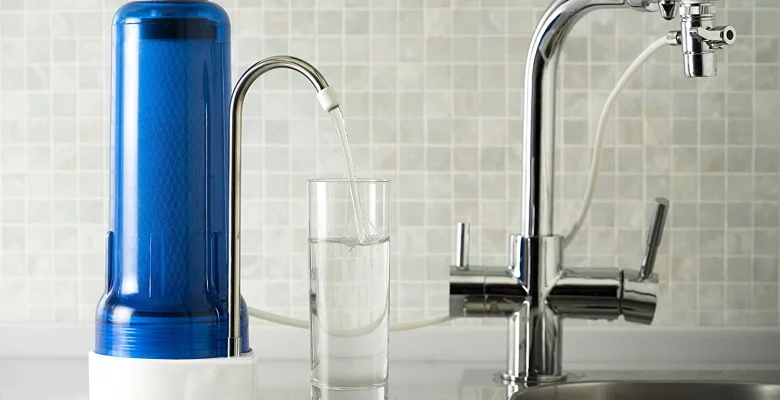

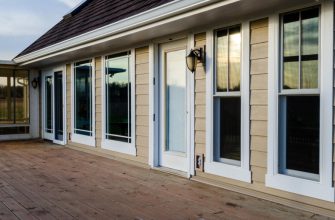

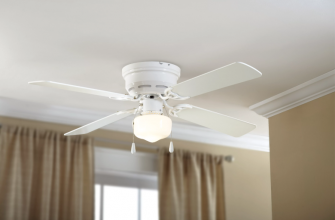
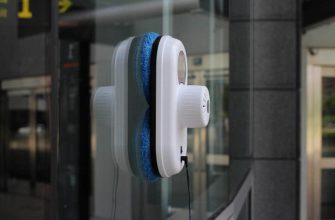
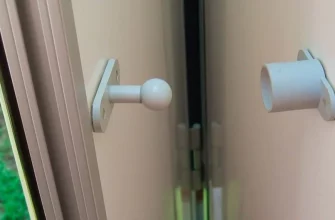
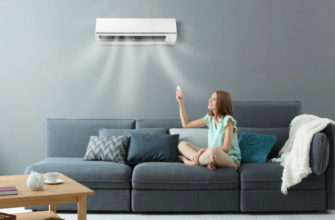
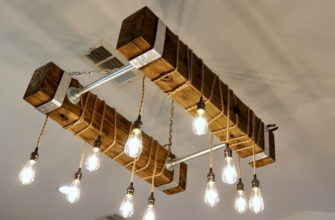
I live in a trailer and we have horrible hard water and what filtration system can we used to work for the whole home
Hello. To address the issue of hard water in a trailer, a whole home water filtration system can be a suitable solution. These systems are designed to filter water for the entire home, ensuring that all water sources, including kitchen, bathroom, and laundry, have treated water. Given the space constraints of a trailer, a compact system would be ideal. Look for a system that specifically targets the minerals causing hardness in water, such as calcium and magnesium. It’s also important to choose a system that is easy to maintain and fits within your budget. Remember to consider the installation process, as some systems might require professional installation, while others are more DIY-friendly.